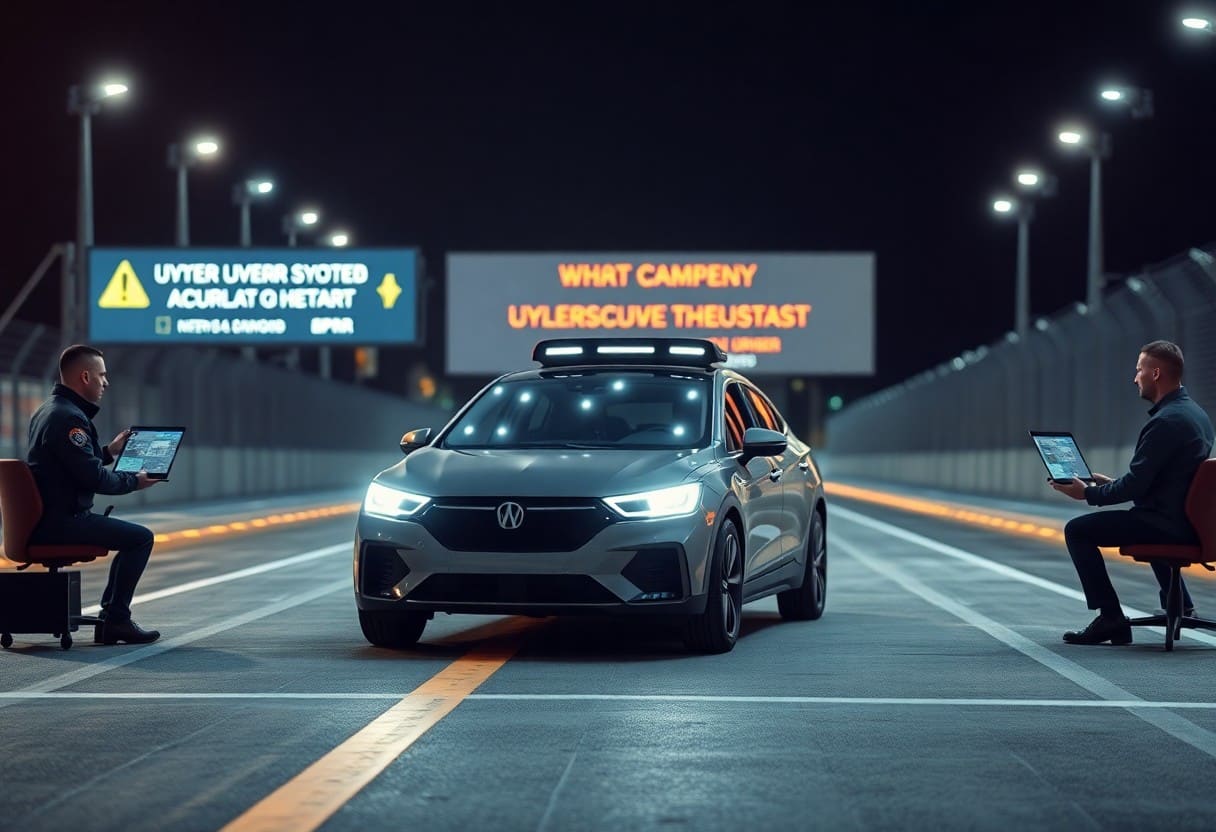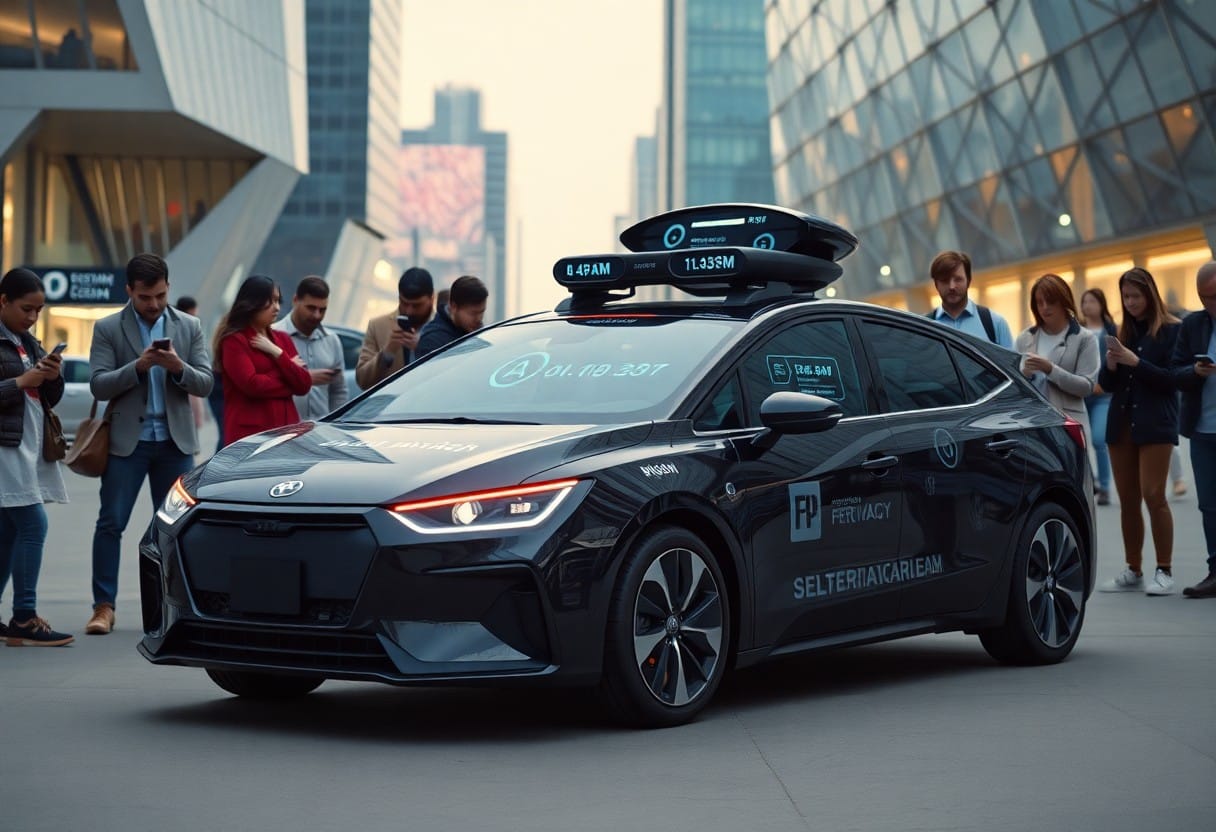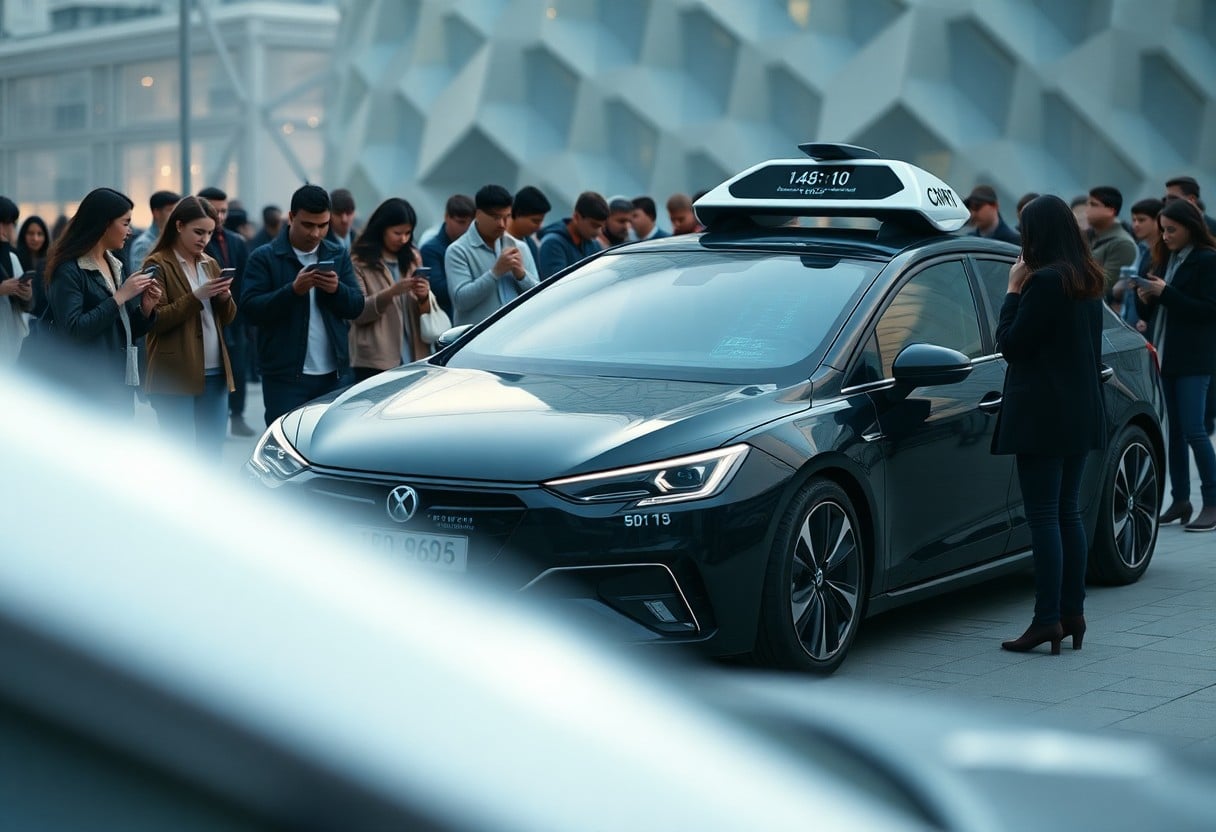There’s a growing conversation about the potential risks associated with self-driving cars, particularly when it comes to automotive AI cybersecurity and data privacy. As you explore the exciting world of autonomous vehicles, understanding the challenges related to your personal data and the security of these advanced systems is important. This blog post dives into the pressing concerns and implications that come with the integration of AI in the automotive industry.

Key Takeaways:
- Cybersecurity vulnerabilities in self-driving cars can lead to unauthorized access and manipulation of vehicle systems.
- Data privacy concerns arise from the collection and processing of sensitive user information by autonomous vehicle technologies.
- Robust security measures and regulatory frameworks are imperative to mitigate risks associated with AI in automotive systems.
Decoding the Dual Threat: Cyber Attacks and Data Breaches
The rise of self-driving cars brings both innovation and vulnerability. As these autonomous vehicles rely heavily on complex software systems, they become prime targets for cyber attacks. Hackers can potentially manipulate vehicle functionalities, posing significant risks to your safety. Concurrently, the collection and storage of vast amounts of personal data create opportunities for data breaches, wherein sensitive information can be accessed and exploited. Understanding these dual threats is important for ensuring the security and privacy of self-driving cars.
The Vulnerability of Autonomous Systems
Autonomous systems operate through interconnected networks, which intensify their susceptibility to cyber threats. Your self-driving car utilizes various sensors and data inputs, making it reliant on software that can be compromised. These vehicles require constant communication with cloud services and other vehicles, opening numerous entry points for potential attackers to exploit. With the increase in operational complexity, your vehicle’s defenses must be robust to withstand these vulnerabilities.
Real-World Incidents and Their Implications
Several incidents have highlighted the real risks associated with autonomous vehicle systems. For example, researchers successfully hacked into a connected car, taking control of its steering and brakes, showcasing the potential for disastrous consequences. The implications extend beyond vehicle safety; they include alarming privacy violations as your data could be intercepted during transmission. As manufacturers and lawmakers grapple with these issues, you should remain vigilant about the cybersecurity measures in place for these innovative vehicles.
One prominent demonstration of these vulnerabilities occurred during a security research event where ethical hackers remotely commandeered a specific model of a self-driving car to illustrate its susceptibility. This incident not only raised alarms about vehicle safety but also underscored the potential leakage of personal information from your connected devices. Such cases emphasize the urgent need for stricter cybersecurity protocols and comprehensive regulations to protect both the vehicles and the data they collect. The community of auto manufacturers and tech companies must prioritize hardening their systems to safeguard against future attacks, ensuring your safety and privacy remain intact in this evolving landscape.
Data Protection: The Backbone of Autonomous Trust
In self-driving vehicles, data protection serves as the cornerstone of trust. Your confidence in automated systems hinges on the assurance that sensitive information is safeguarded. The relationship between you and your autonomous vehicle is dependent on solid data practices that prevent unauthorized access. As regulations evolve, measures surrounding Automated Vehicle Safety emphasize the importance of secure data management, ultimately ensuring safety and reliability on the road.
Current Regulations Impacting Data Privacy
Existing regulations like the General Data Protection Regulation (GDPR) and the California Consumer Privacy Act (CCPA) directly influence how data from self-driving cars is managed. These laws require that companies provide transparency about data collection and storage, giving you more control over your personal information. Manufacturers must implement protocols that comply with these regulations, compelling them to prioritize data privacy, which affects your experience and trust in autonomous systems.
The Role of Encryption and Secure Protocols
Encryption and secure protocols are vital for protecting data in autonomous vehicles. By encrypting data, manufacturers ensure that sensitive information remains unreadable to unauthorized users, reinforcing your security. Secure communication channels between vehicle systems and external sources further minimize the risk of cyber threats. Robust encryption standards, such as AES-256, are often implemented to protect both data at rest and data in transit, enhancing overall safety and fostering trust in autonomous technology.
The Stakeholder Spectrum: Who’s Responsible?
Assessing responsibility within the automotive AI landscape involves multiple stakeholders, ranging from manufacturers and software developers to government bodies. Each entity plays a unique role that complicates accountability, particularly when issues of cybersecurity and data privacy arise. Understanding the responsibilities shared among these stakeholders can illuminate potential vulnerabilities and improve overall safety in self-driving vehicles.
Manufacturers vs. Software Developers
You might think that the vehicle manufacturers bear the brunt of responsibility for the cybersecurity of self-driving cars. However, software developers also play a key role in ensuring that systems are secure and data is protected. Often, manufacturers rely on third-party developers, leading to questions about who is ultimately accountable when breaches occur.
The Role of Government and Regulatory Agencies
Government and regulatory agencies are stepping in to establish safety standards and guidelines for self-driving cars. They implement laws around cybersecurity protocols and data privacy, ensuring that manufacturers and software developers follow best practices. Through initiatives like the National Highway Traffic Safety Administration (NHTSA) guidelines, these agencies aim to foster consistency and encourage transparency among all stakeholders.
The role of government in automotive AI isn’t just about setting rules; it’s about ensuring public safety. Agencies are increasingly focused on developing frameworks for testing and deploying autonomous vehicles that prioritize cybersecurity. With incidents of hacking on the rise, regulations may require manufacturers to conduct routine security audits and disclose potential vulnerabilities. Their oversight will be necessary in creating a secure environment, as regulations could evolve rapidly to address emerging threats in technology and data privacy landscapes.
Innovations in Security: The Future of Automotive Protection
As self-driving technology evolves, so does the approach to security. Advances in software and hardware are creating robust defenses against cyber threats. Enhanced encryption methods and real-time monitoring systems are integral to safeguarding sensitive data collected by vehicles. You may find more on the implications of this technology in Are Self-Driving Cars A National Security Risk?.
AI-Driven Threat Detection Systems
Integrating AI-driven threat detection systems will revolutionize automotive security. These intelligent systems leverage machine learning to identify abnormal behaviors and potential threats in real-time, giving your vehicle a proactive defense against cyberattacks. The instantaneous analysis will enhance response times, ensuring safety on the road.
Collaborations Between Tech Giants and Automakers
Strategic alliances between tech giants and automakers are shaping the future of automotive security. Companies like Google and Ford are pooling resources to develop advanced cybersecurity solutions tailored for autonomous vehicles. This cooperation ensures that cutting-edge technology is consistently implemented, addressing vulnerabilities more efficiently than ever.
Collaborations exemplify a trend where tech firms and automotive manufacturers unite to pool expertise. For instance, partnerships with cybersecurity leaders like Palo Alto Networks enable automakers to integrate sophisticated threat detection mechanisms directly into vehicle systems. This synergy leads to the continuous evolution of security protocols, fostering a safer environment for the deployment of self-driving technology. The shared knowledge among companies accelerates innovation, allowing for rapid responses to emerging threats, ultimately benefiting all drivers and passengers.

Public Perception: Trusting the Driverless Revolution
Your confidence in the driverless revolution hinges on a complex web of technology, ethics, and safety. As you consider the future of self-driving cars, concerns about reliability and cybersecurity often shape your opinions. Understanding that autonomous vehicles depend on advanced AI can help you grasp the challenges ahead. For more insights, investigate into this resource on Autonomous Cars & Cyber Risks.
The Impact of Cybersecurity Breaches on Consumer Confidence
You might feel uneasy knowing that cybersecurity breaches can significantly undermine trust in autonomous vehicles. High-profile incidents have shown that a single breach can lead consumers to question the safety and reliability of self-driving technology. This skepticism can stall adoption, as potential drivers worry about data theft and vehicle manipulation, further complicating the transition to a driverless future.
How Transparency Can Drive Adoption
Transparency surrounding cybersecurity measures can significantly influence your acceptance of self-driving cars. Knowing how automakers protect your data and ensure safety reassures you that they prioritize cybersecurity. Clear communication about risks, preventative strategies, and incident response plans enhances trust. Engaging in public dialogue and educational campaigns can bridge the gap between innovation and consumer comfort, paving the way for broader acceptance of autonomous technology.
Offering regular updates on cybersecurity practices helps demystify the technology for you. When automakers provide a detailed breakdown of data handling and protective measures, it nurtures a more informed public perspective. Real-life examples of how companies have successfully mitigated risks or addressed breaches can showcase their commitment to safety. Events that promote open discussions about AI in vehicles will further empower you, enabling a smoother transition from skepticism to acceptance of self-driving cars.
Final Words
So, as you consider the future of self-driving cars, it’s clear that automotive AI cybersecurity and data privacy represent significant concerns. With the increasing reliance on technology, you must stay informed and advocate for robust security measures to protect your personal information. Understanding these risks can help you make wiser decisions and ensure a safer, more secure experience in this exciting automotive evolution.




Pingback: Are Automotive AI IPOs And Acquisitions Reshaping The Future Of The Automotive AI Industry? -
Pingback: What Role Do Explainable AI, Federated Learning, And Digital Twins Play In Automotive AI Technology? -
Pingback: How Will Automotive AI Edge Computing And 5G Connectivity Enable Real-Time Autonomy? -
Pingback: 7 Stunning Ways Automotive Artificial Intelligence Powers The Self-Driving Car Revolution
Pingback: Revolutionizing Automotive Manufacturing: Sustainable Electric Cars And Eco-Friendly Supply Chains - The Future Of Green Mobility -